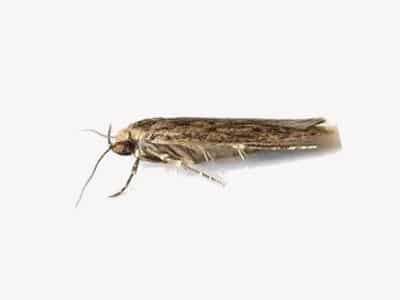We spend a lot of time thinking about the future here at Pest Solutions.

As one of the fastest growing pest control companies in the UK, we are constantly looking for new and innovative ways to provide a more effective service for our valued customers.
The key to planning for the future, however, is learning from the lessons of the past, and the history of pest control is a long and fascinating journey, leading us all the way from Ancient Egypt right up to the present day.
As much as we are always striving for positive change, we are incredibly respectful of those who have gone before us. After all, without them we wouldn’t be here talking to you today, and the people of Scotland would be too busy dealing with ants in their pants and bugs in their rugs to be reading this article.
Ever since humans began farming land, pests have posed them problems and action has been taken to control them.
With evidence of cereal cultivation found near the Sea of Galilee dating back over 20,000 years, the pest control industry is undoubtedly one of the oldest, and most important, industries in the history of the world.
The first recorded evidence of pest control methods comes, as so many firsts in history do, from the Ancient Egyptians who used cats to protect their grain stores from rats and other rodents as early as 3000 BC. This may well not have been the first instance of biological pest control, however, with cave paintings discovered in China depicting ducks used to protect paddy fields from pests thought to date back as early as 4000 BC.
In certain settings, harnessing the power of the food chain to control pests is a method still used to this day, think falconry for bird control, and some of the innovative ways this technique has been used throughout history are truly remarkable. For example, in 1200 BC the Chinese were recorded using an innovative rope system to transport predatory ants to where beetles and caterpillars were feasting on their citrus trees.
By 2500 BC, Sumerians in Mesopotamia were using an early form of pesticides in the form of sulphur to protect their crops from insect attacks and the Ancient Greeks used fire to drive away locusts.
Ever since, insecticides have been used across the globe, although some of the biggest developments in insecticide production has occurred during the past few centuries.
It is all very well talking about pests from thousands of years ago, but the pest control industry as we know it today has actually developed in a remarkably short period of time.
In fact, some of the biggest changes in how pests are seen and handled have been made within the past 100 years. A combination of improved understanding of animal behaviour in the 19th century following the work of Darwin, and the technological revolution of the past 50 years, changed the pest control industry beyond all recognition.
Nowadays, any new pest control techniques or technologies are developed with a solid basis in scientific fact, and driven by data, rather than purely the observations of those in the field (sometimes literally).
During the industrial revolution, chemical pest control really started to explode in popularity, a trend that was boosted in the 20th century by the discovery of synthetic insecticides such as DDT.
Many mistakes were made during the early stages of chemical pest control, including accidental harm being done to humans and other non target species, and the overuse of chemicals leading to resistance in future pest generations.
The foundation of the IPCA, later to become the BPCA, in 1942, was the start of a drive for more regulation and legislation in the pest control industry, a fight that continues to this day.
Nowadays, there are strict rules regarding the use of pesticides and non-toxic chemicals and non-chemical solutions are promoted whenever possible.
As full members of the BPCA we fully support their push for professionalism and strive to be as responsible as possible every single day when resolving our client’s pest issues.
Whilst we respect and learn from the pest control industry of the past, it is the future which inspires us the most and we are fully committed to being a big part of that future here at Pest Solutions.
Unlike many of the decisions made in the past, science will be the driving factor behind all future decision making and we have invested heavily in both technology and a team packed with animal behavioural experts and qualified biologists.
There are certainly challenges ahead for pest control in the UK, and across the globe, with global warming set to increase the number of issues caused by insect species in particular.
A rise in average temperature is likely to make the UK habitable for many pest species that may have struggled to cope with the colder climate here in the past and as a pest control company we will need to adapt to take on these new threats.
There are also some concerns that the overuse of pesticides in pest control will lead to resistance amongst some pest species and there has already been some scientific research to evidence this.
This is one of the reasons that we are so committed to increased professionalism and regulation within the industry. As members of the BPCA, we are part of a group of top pest control companies pledging to keep our use of pesticides responsible and limited, using other control methods whenever possible.
Despite the challenges ahead, the future looks bright here at Pest Solutions. More and more technologies are being developed every single year based on extensive scientific research that allows us to create more effective pest control strategies than ever before.
There has also been a much-welcomed shift towards professionalism in the industry that we hope will lead to more responsible practices and look forward to being at the forefront of this movement going forward.

Rated 5
Out of updating... Reviews
We are open 24 hours 7 days a week to help with all pest related enquiries.
We are open 24 hours 7 days a week to help with all pest related enquiries.
We are open 24/hours 7 days a week to help with all pest related enqurirs.